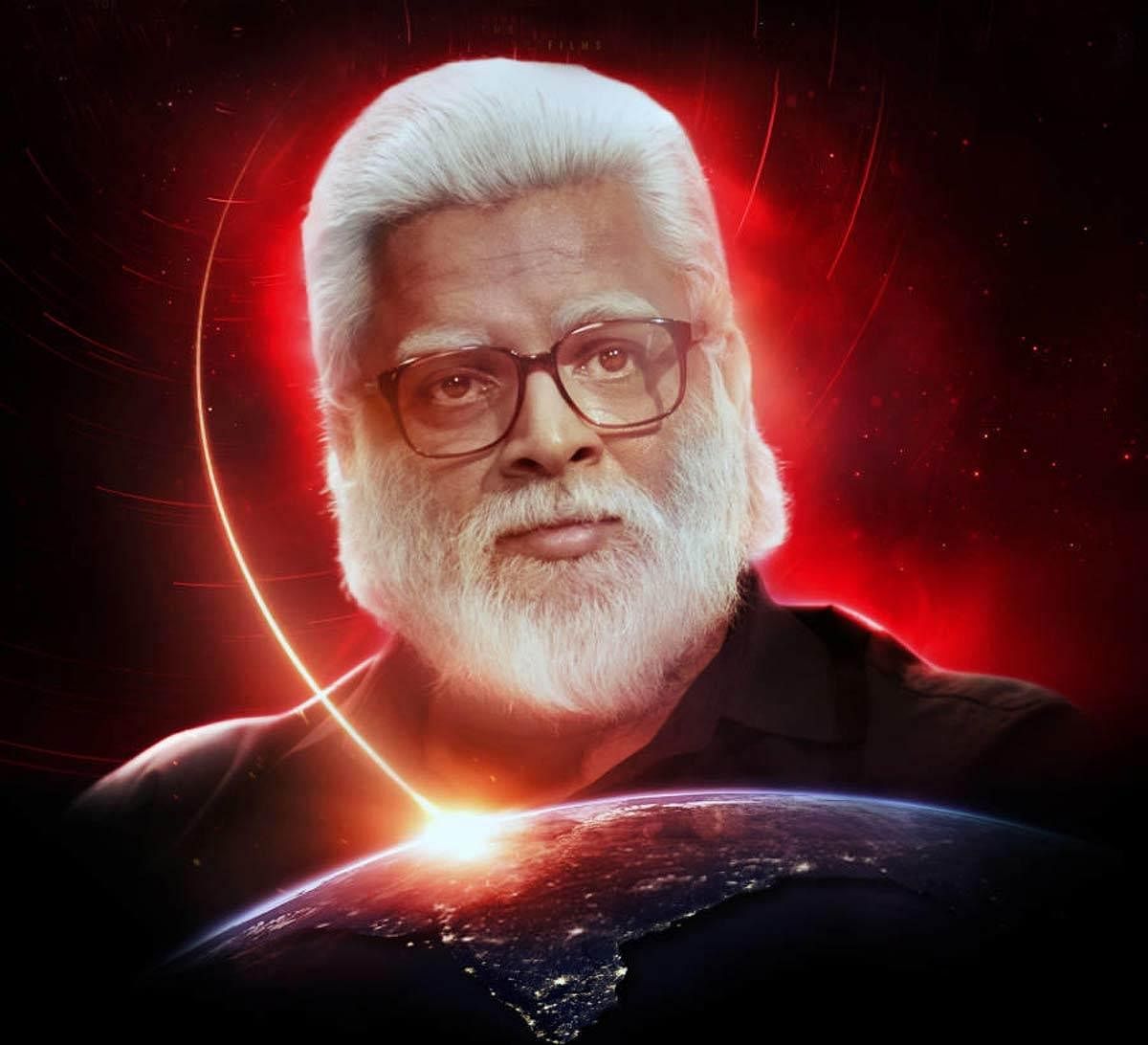
R Madhavan’s new film 'Rocketry: The Nambi Effect' is about space scientist Nambi Narayanan, who was falsely accused of espionage and, by all logic, should either have explored the thrills of science or about the failings of the state — if someone as talented as he (purportedly was) faced such a serious charge through no fault of his own.
That the film has been described as ‘jingoistic’ is indicative of how subject matter that should rightly arouse our curiosity is milked for patriotic feelings. In the film, the protagonist Nambi Narayanan is repeatedly eulogised for his brilliance and he refuses a job at NASA because of his feelings for the Indian nation and his desire to do good here. Indian cinema is not comfortable dealing with science even in sci-fi films although the ‘brilliant scientist’ is not uncommon as a motif.
The first mainstream sci-fi film was apparently Rakesh Roshan’s 'Koi… Mil Gaya' (2003) but that film is actually focused — initially — on a brilliant Indian scientist in the West not recognised by his white colleagues. Later on, after his accidental death, his son develops super-human capabilities due to the father having communicated with extra-terrestrials using the sacred sound ‘Om’.
But my interest is only in why the science itself does not figure in Indian films about scientific work and the narratives digress instead into eulogies about Indians, or the motherland. In the Dara Singh ‘sci-fi’ film 'Chand Par Chadayee' (1967) directed by TP Sundaram, the focus is on the patriotic protagonist fighting wicked moon men who kidnapped an eminent Indian scientist using a treacherous moon-belle. In all such films, the plot diverges from the scientific (or fantastic) aspect to focus on familiar pleasures like love, patriotism and action. Why are scientific work and associated discoveries deemed not exciting enough?
If we study Indian cinema in relation to Hollywood, we find some fundamental contrasts. Hollywood offers novelty while Indian audiences relish the familiar. Hollywood fantasies try to awaken our sense of wonder or horror as the case may be, and one of the reasons for Indian cinema being invincible on its own turf - while better-established cinemas have succumbed to Hollywood — is that Indian audiences seem relatively immune to the attractions of novelty. They have little use for man-eating aliens or slumbering monsters set loose by catastrophes.
The attractions of cinema can be broadly understood as those of locale, situation, character and plot but in each of these areas, Indian cinema revels in offering the familiar to its public. It does not try to take its audiences to unseen locales, its situations do not make one gasp and its plot devices hardly surprise.
Even the characters in Indian films are rarely capable of the unexpected. Whenever there is novelty on offer, as for instance in the Tamil film Thiagaraja Kumararaja’s 'Super Deluxe' (2019), it is the work of a cinephile familiar with international cinema. The ploy of the absent husband/father returning as a transsexual owes, for instance, to Pedro Almodovar’s 'All About My Mother' (1999). But even here, the Tamil story is turned around to the returned person remaining a loving parent, doing her duty to her family.
When it comes to Indian films, it is as though the most important things about the world are already known to traditional wisdom and novelty is only ‘passing fancy’. In fact, when the father of Indian cinema DG Phalke made his first mythological films, he asserted that his films were only bringing to life what was already known as ‘true’.
How Indian cinema would respond to subject matter like rocket propulsion which is not traditional may hence be conjectured, and I propose that it would be hard-put to construct a narrative with such an element of novelty. Even if rocket engineering is too esoteric its basic issues should be understandable, but the film steadfastly avoids them.
Taking a film like 'The Imitation Game' (2014) about Alan Turing (who invented the computer), that film is able to make the untangling of technical problems exciting to a lay audience by contextualising it in World War II intrigue, and I am sure that the advantages of liquid propulsion over solid propellants (what Narayanan specialized in) could also be made thrilling.
If there is something especially sought by Indian audiences in entertainment, that is a reiteration of the familiar. So, when an exceptional tale like Nambi Narayanan’s involving unfamiliar technology and the intrigue around it is to be told, the film only deals out traditional cliches —brilliant people envied by their rivals or selfless patriots loyal to their homeland.
(The writer is a well-known film critic and an author).